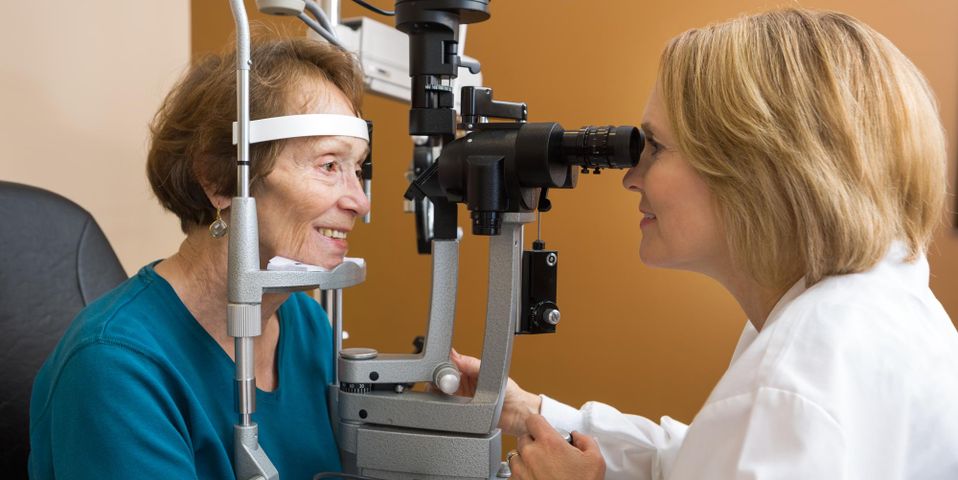What to Know About Age-Related Macular Degeneration

While eye doctors check your vision and provide up-to-date prescriptions to help you see clearly, they also play an essential role in early disease detection. One eye condition that can impede vision is age-related macular degeneration. In honor of Age-Related Macular Degeneration Month this February, here’s what you need to know about the disease.
A Guide to Age-Related Macular Degeneration
What Is Age-Related Macular Degeneration?
Also known as AMD, age-related macular degeneration is a leading cause of vision loss in people over the age of 50. It is when the macula, a small area of the eye needed for sharp eyesight in the central field of vision, is damaged. The condition causes a blurred area near the center line of sight, which may grow in size and be accompanied by blank spots over time. Colors may also appear duller than usual.
What Are Some Risk Factors for the Disease?
 Eye doctors believe AMD is influenced by a combination of environmental, genetic, and lifestyle factors. The condition is most common in Caucasians than other races. As its name suggests, risk can increase with age. Smoking and having a family history of the disease can also increase risk, but there is currently no genetic test which can determine the likelihood of developing it. AMD also appears less frequently in people who exercise regularly.
Eye doctors believe AMD is influenced by a combination of environmental, genetic, and lifestyle factors. The condition is most common in Caucasians than other races. As its name suggests, risk can increase with age. Smoking and having a family history of the disease can also increase risk, but there is currently no genetic test which can determine the likelihood of developing it. AMD also appears less frequently in people who exercise regularly.
How Can an Eye Doctor Help?
While there isn’t a cure for AMD yet, it can be managed with professional help. Diagnostic testing can be performed to monitor the advancement of the disease. Treatments such as supplements may be recommended to slow vision loss in individuals with late AMD.
One of the most powerful ways to prevent and control the effects of eye conditions is to have your eyes examined regularly. If you’re due for an appointment, contact the experienced team from Medical Eye Center in Columbia, MD. These eye doctors are committed to helping patients maintain optimal vision through all stages of life. Browse their list of services online or call (410) 997-9900 to schedule an appointment.
About the Business
Have a question? Ask the experts!
Send your question

